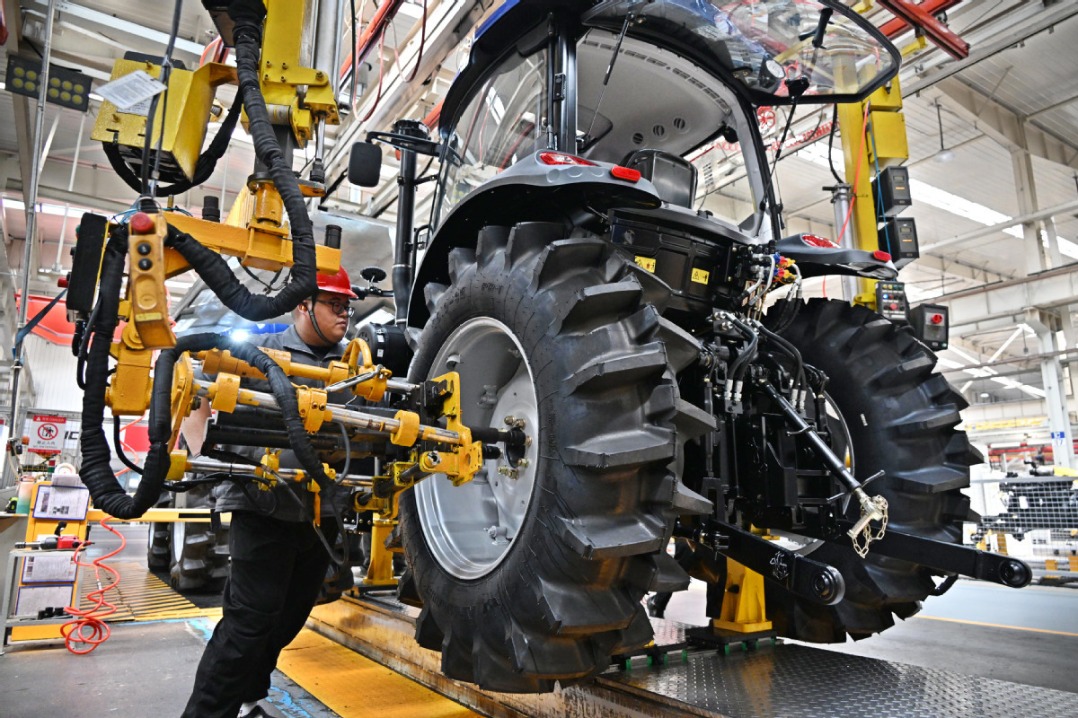Hami attracting large-scale projects
Xinjiang city's rich natural resources get close attention from investors


As a number of high-tech and large-scale projects in emerging sectors are taking shape, Hami in the Xinjiang Uygur autonomous region is harnessing its abundant natural resources to spearhead an industrial transformation driven by new growth engines.
Situated in the foothills of the eastern Tianshan Mountains, Hami boasts abundant wind and solar resources. However, despite its status as a key new energy hub in eastern Xinjiang, the region lacked a photovoltaic silicon industry until recently, as a monocrystalline silicon wafer production project has entered the commissioning phase.
With an annual production capacity of 60,000 metric tons of industrial silicon already established, the first phase of the monocrystalline silicon wafer production project, which includes 10 gigawatts of production capacity, is currently in trial operations, said Qingdian Silicon Industry Co Ltd, the project's operator.
Once fully operational, the project is expected to have an annual production capacity of 60 GW of photovoltaic silicon wafers, which are essential materials for solar panels, and the final products will be supplied both within Xinjiang and across China, the manufacturer said.
Monocrystalline silicon products sit upstream in the photovoltaic industrial chain. By employing state-of-the-art monocrystalline furnace technology to process silicon materials — including melting, crystallization, slicing and cleaning — the end result is the production of solar cells, which are then assembled into photovoltaic panels of various specifications.
An integrated silicon-based industrial chain is a development target in Hami, which extends from raw material production — such as silicon rods and wafers — to photovoltaic cells and modules. With accelerated efforts to capitalize on its abundant wind and solar energy resources, the city aims to turn its energy advantage into a manufacturing edge.
"Xinjiang's rich natural resources and electricity cost advantages have enabled us to establish a complete silicon-based industrial chain here," said Qin Xiandong, senior manager at Qingdian Silicon's R&D department.
"We've completed the installation and testing of 456 monocrystalline furnaces, with a total of 800 units to be in place by the end of the year. By 2026, we aim to reach an annual capacity of 40 GW with 3,000 furnaces," Qin said.
Hami will continue to accelerate development of the new materials industry by advancing major project construction, driving fullchain development through leading enterprises, and upgrading existing manufacturing technologies and processes, said Dou Rencai, deputy director of Hami's bureau of industry and information technology.




































